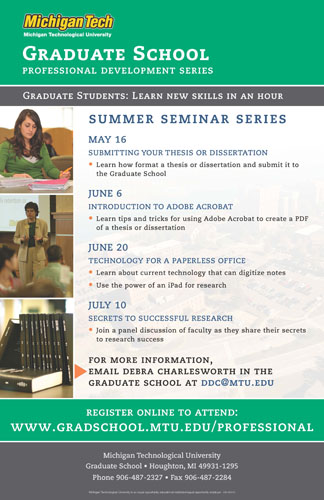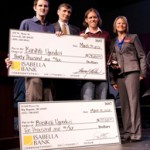Martha Sullivan, the president of Sensata Technologies, will address more than 1,000 graduates during Michigan Tech’s Spring Commencement.
The University will honor the achievements of 854 undergraduates and 199 master’s and PhD candidates during ceremonies on Saturday, April 28.
Sullivan, who earned a BS in Mechanical Engineering from Michigan Tech in 1983, was named president of Sensata in 2010, in addition to her role as chief operating officer and director of several of the company’s subsidiaries. Previously she was executive vice president and chief operating officer, a position she had held since Sensata was purchased by Texas Instruments in 2006.
Sullivan joined Texas Instruments in 1984 and rose through the ranks, attaining the post of vice president of Sensors in 1997. During her tenure, sensors revenue grew at a compounded annual growth rate of 11.2 percent with 10 consecutive years of growth, while profits increased by 23 percent annually.
Sensata Technologies is one of the world’s leading suppliers of sensing, electrical protection, control and power management solutions. The company, with revenues of $1.8 billion, has manufacturing and technology development centers in 11 countries and employs 11,500 people.
Sullivan is a member of the Presidential Council of Alumnae and the Academy of Mechanical Engineering and Engineering Mechanics at Michigan Tech and serves on the University’s Generations of Discovery Capital Campaign. She and her husband, Michael, have two children and live in Westport, Mass.
Published in Tech Today

